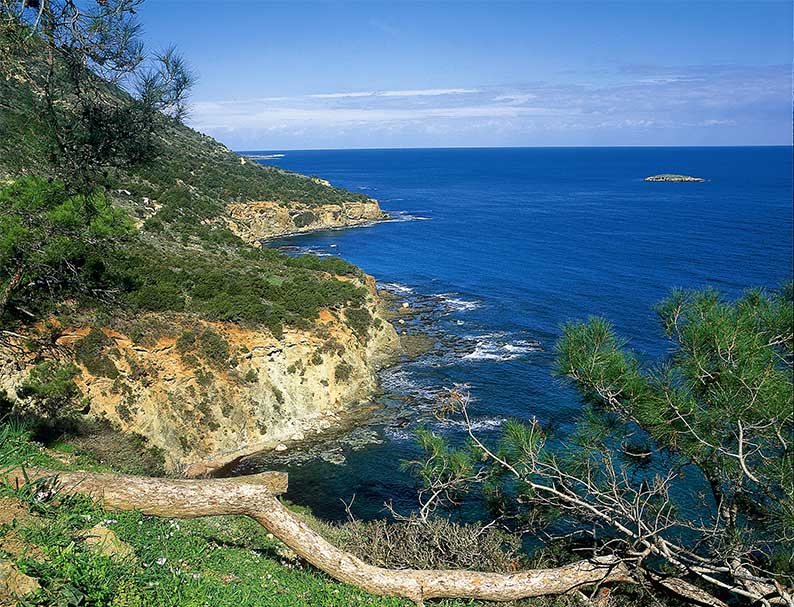The Cyprus Federation of Environmental Organisations (Opok) has released a statement, outlining its position regarding the Department of Environment’s new assessment of the revised regional plan for Akamas, which was unveiled to the public last Tuesday.
In its statement, Opok said problematic provisions remain, such as the creation of a new quarry zone for Androlikos, a new tourist zone for Ineia, and the inclusion of protected beaches into the coastal tourist zones of Neo Chorio.
Opok also said that there were omissions in the documents, namely, no proposed alternative sites for specialised developments were submitted for assessment, neither was there stipulation of compensatory measures and appropriate urban planning tools for the communities of Ineia and Droushia, in violation of the provisions of the European Union directives on habitats and birds.
Another omission highlighted, was the failure to comprehensively evaluate the impact of proposed zone changes on watercourses and places of outstanding geological importance.
Calling the special ecological assessment report an attempt to improve the “extremely problematic” revised Akamas plan, the environmentalists drew attention to three main regions within the Natura 2000 network, where they claim the plan – as it currently stands – would have serious and irreversible negative impacts on conservation.
The revised Akamas plan foresees significant expansion of the existing residential and tourist zones and the creation of new ones near environmentally sensitive areas. This expansion, Opok says, particularly of new urban development zones far from the centres of local communities, are not justified.
The environmentalists also drew attention to absence of sufficient demarcation for certain areas (the so-called ‘special conservation’ zone and the ‘special protection’ zone which include the Ayia Aikaterini and Ayia Paraskevi gorges), and pointed out in that in terms of biodiversity protection, it was important to view the entire area of the Akamas peninsula as a whole.
Criticising what it called the “scattered building and incompatible development” proposed by the plan (which in turn requires significant expansion of infrastructure, such as electricity, water supply and drainage, public roads), Opok maintained the plan will lead to habitat fragmentation, displacement of wildlife, degradation of natural landscapes, and significant biodiversity loss as a result.
Animals whose habitats would be threatened include nine species of birds, the indigenous Cyprus beetle (Propomacrus cypriacus), as well as the Egyptian fruit bat (Rousettus aegyptiacus), locally known as ‘Nyktopapparos’.
Additionally, the creation of a tourist zone and the resultant light pollution around Ineia is seen as potentially problematic due to its placement at the highest point of the Akamas ridge and its visibility from the main spawning beaches of two species of sea turtles, the Green turtle (Chelonia mydas) and the Loggerhead turtle (Caretta caretta).
Similarly, the proposed coastal tourist zone for Neo Chorio, in addition to the turtles, threatens the endangered Mediterranean seal (Monachus monachus), a species of bats, and a number of aquatic migrating birds.
Opok firmly expressed the view that instead of this, the best way to proceed would be to expand development only within the existing limits of the local communities, particularly as these remain to a large extent underutilised.
In their statement, the coalition of environmental groups called for the outright abolition of certain parts of the plan and offered alternatives for other parts. They also argued the Akamas and Peyia local plans should be jointly assessed on the basis of conservation objectives also taking into account the Akamas National Forest plan, saying all three development plans result from the same decision of the council of ministers, dating from 2016.
It was necessary, to establish appropriate compensatory measures and urban planning tools for among others, road network improvements, expropriation of private properties and their declaration as state forest land, exchange of private property in environmentally sensitive areas and revocation of urban development zones.
Finally, Opok proposed the need to provide hectare subsidies to encourage agro-environmental measures, such as protection of natural vegetation and landscape features, maintenance of dry-stone walls, sustainable management of vegetation in pastures and conversion from conventional to organic agriculture.







Click here to change your cookie preferences